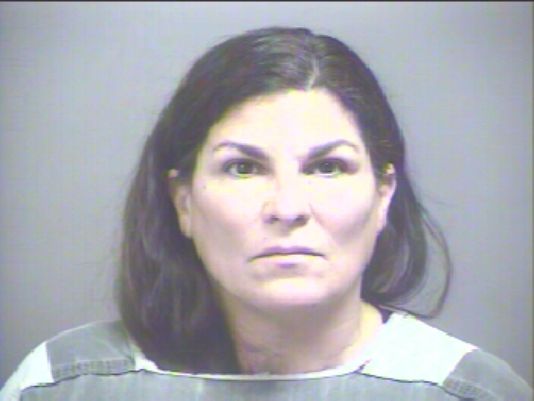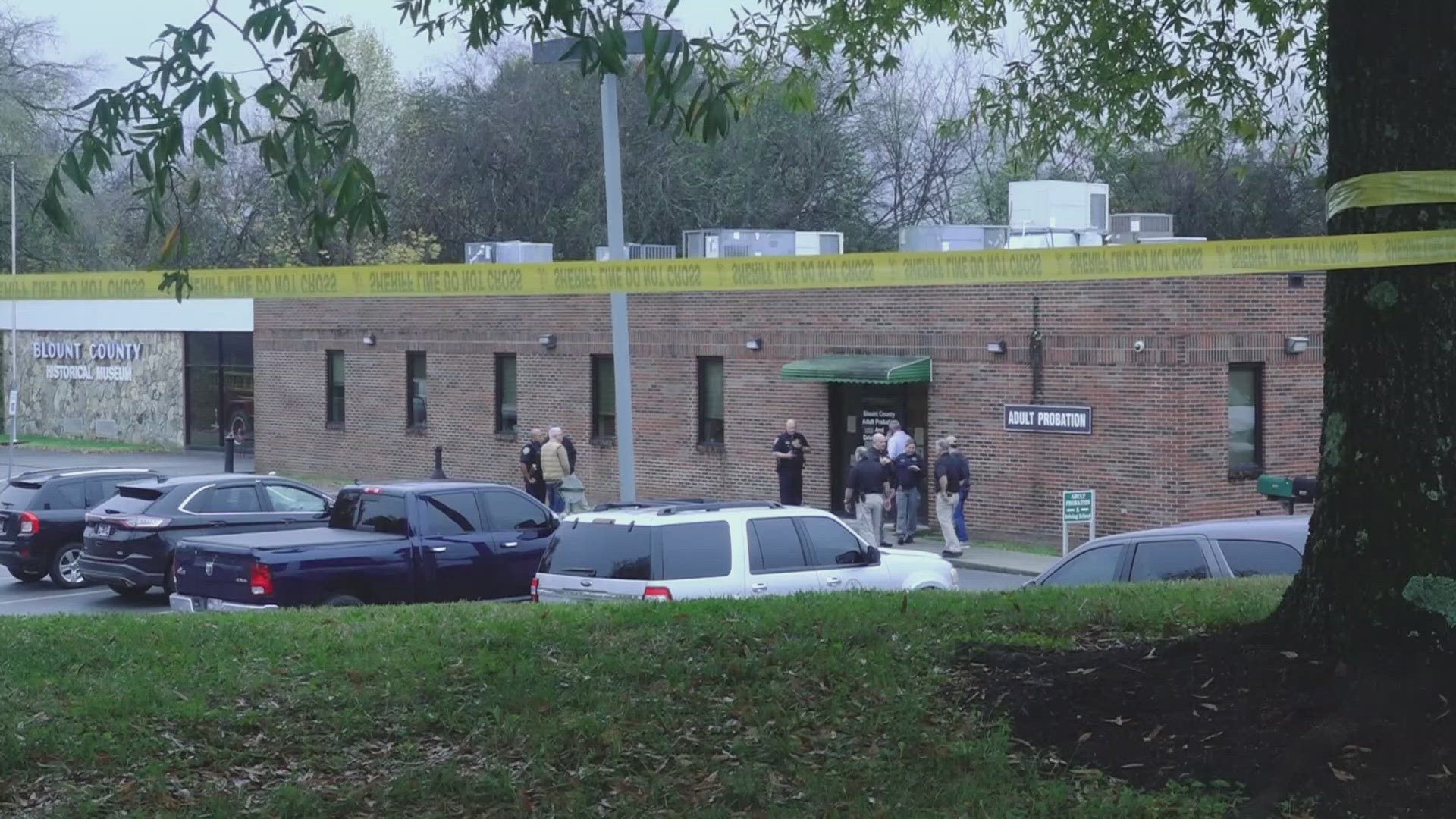(WBIR) The alleged operator of Knoxville-area pill mills that federal prosecutors called "the largest drug dealer to ever set foot in a courtroom in East Tennessee" will remain behind bars until trial because she is a potential flight risk, a U.S. magistrate judge ruled late Friday.
Judge Clifford Shirley, after a daylong hearing in U.S. District Court in Knoxville, said he had lingering questions about Sylvia Hofstetter, the former Florida resident who moved here in 2011 to start and to oversee pain clinics.
Hofsetter, 51, is facing a potential 20-year prison sentence, maintains her U.S. passport, takes frequent trips to Florida and often has vacationed outside the country, Shirley said. She likes to gamble and has taken out cash amounts of as much as $15,000, Shirley noted.
With her arrest this week, she also has suddenly lost a $1.2-million-a-year lifestyle "that has now been reduced to zero," the judge said.
"That could be an incentive to leave - or do something," Shirley said.
Hofstetter's daughter Sylvia Gil left the federal courtroom in tears after the judge announced his decision.
Defense attorney David Eldridge had sought Hofstetter's freedom Friday afternoon, arguing she would happily comply with any rules the court put down while out of jail. He said Hofstetter maintained ties to the area including home ownership and the presence of Gil and a 7-year-old grandson.
Eldridge said his client has no criminal record and no "cash hoard" that she could turn to if she wanted to flee. Further, he said, there's been no evidence offered that she either wrote or approved any prescriptions to alleged pill mill customers.
Assistant U.S. Attorney Tracy L. Stone said she was arguably the biggest drug dealer in East Tennessee history, if the amount of pills that went through the clinics she oversaw were added up. She had ties to at least two pill shops, he said, one in Lenoir City and one on Lovell Road.
Hofstetter "hid behind the appearance of legitimacy and she persists in doing that to this day," Stone told Shirley.
He warned she would find a way to go back to working in the pill mill trade if she were set free, perhaps by phone, perhaps by computer.
"Her entire life the past few years has been a lie," Stone said.
Hofstetter should be accountable for letting scores of addicts get drugs, resulting in a number of area overdose deaths, Stone argued.
"She has blood dripping from her hands," he said.
Chained and wearing a gray and white jail uniform, Hofstetter frequently shook her head as Stone addressed the court.
As she was led away after Shirley made his ruling, she turned and looked at Gil. They exchanged "I love yous" and she left the courtroom.
PREVIOUS STORY, FRIDAY, MARCH 13, 3:00 PM.
At least seven overdose deaths, a Florida group known as "the Italians" with links to organized crime, insulting stereotypes about Tennesseans, drug addicts soiling themselves in a parking lot, disgruntled employees who formed a rival pain pill clinic, and a seven-year-old grandson all have one thing in common. They were all mentioned during several hours of arguments in federal court to decide if accused pill-mill mastermind Sylvia Hofstetter should be released from jail until trial.
Hofstetter was shackled and chained as she appeared before federal magistrate Clifford Shirley in U.S. District Court in Knoxville on Friday. Hofstetter was arrested earlier this week and indicted on nine counts for operating sham pain clinics that sold painkiller prescriptions to customers for cash. FBI agents said the pill mills generated net revenues of more than $17 million since late 2011.
Related Story: FBI raids led to $17.5 million Knoxville pill mill bust
U.S. prosecutors called FBI special agent Andrew Chapman as their sole witness against Hofstetter's release. Chapman proceeded to outline a lengthy multi-year investigation into Hofstetter's relocation to Knoxville from Florida, the pain clinics she was directed to operate by people in Florida known as "the Italians," and the day-to-day operations of clinics that took cash for painkiller prescriptions with no medical doctor on site.
Chapman said when state laws clamped down on painkiller pill-mills in Florida, the operators set their sights on relocating to Tennessee to "take the supply to where the demand was." In late 2011, Hofstetter relocated to Knoxville from Florida and opened a pain clinic in Lenoir City, moved into an affluent home in West Knox County that was "completely paid for in a month," and went to work as "the manager of clinics with some ownership."
Chapman said the two clinics overseen by Hofstetter in Lenoir City and at Lovell Road in West Knoxville each received more than 1,000 patients a month. There were no more than two doctors ever at any location. Patient visits usually took five minutes before the customers had a written prescription for powerful opioids in-hand. Customers paid cash only. Trips to the clinic cost $325 to $350 per visit. The cash expense for an uninsured person to visit a legitimate doctor for the same treatment would typically cost $150.
In four years, the FBI said prescriptions for more than 12 million pills were written by Hofstetter's clinics, which are actually owned in name-only by Dr. Richard Larson. Chapman said there were at least seven overdose deaths due entirely to opioid drugs that were prescribed by Hofstetter's clinics. He said seven deaths was a solid estimate because that number does not include dozens of other overdose deaths where other drugs may have been in the victims' systems.
Chapman said Hofstetter's personal finances changed drastically in the last few years. In 2011, she filed an income tax return that said she made $45,000 a year. In 2012, her income was listed as $97,000. Hofstetter's income on her 2013 tax return was more than $1.2 million.
Her businesses generated more than $17 million dollars, yet Hofstetter did not have an accountant.
The FBI said 13 of Hofstetter's bank accounts have already been seized and other assets are frozen. However, they suspect her business dealings may be connected with 134 bank accounts.
Chapman commented extensively on the poor condition of the "rough crowds" that typically filled the parking lots at Hofstetter's clinics. Many suffered from "pill sickness" where they were physically unable to control their bodily functions due to painful drug withdrawals.
Federal agents and prosecutors hammered home the point that the atmosphere at her clinics were unlike what you would encounter at any legitimate medical facility. Chapman said when Hofstetter continued to deny she was operating a pill mill and defended her businesses, they specifically asked her about the parking lots full of disheveled, toothless, and dingy clients.
"She said all people in Tennessee look the same to her," said Chapman.
Chapman went on to outline how some of the employees at Hofstetter's clinics became disgruntled, formed their own pain clinic, stole clients from Hofstetter, and spoke of Hofstetter's dealings with "the Italians" in Florida. The rival clinic operators believed they could drop "a nuclear bomb" that would have Hofstetter killed by "the Italians" because the men in Florida were believed to be unaware of one of Hofstetter's clinics.
Hofstetter's defense attorney, David Eldridge, argued his client was not a flight risk. He called two witnesses, Carrie Anne Phrogner and Lynn Johnson, to testify that Hofstetter was a reliable and dependable person who would follow court orders.
Phrogner stated she is best friends and roommates with Hofstetter's daughter, Sylvia Gil. Phrogner said she moved to Knoxville from Florida to live with Gil and started working for Hofstetter as a front-desk receptionist. Phrogner said she did not believe Hofstetter was a flight risk because Gill lives in Knoxville and attends South College for nursing school. Furthermore, Gil has a 7-year-old son. Hofstetter and her grandson are "inseparable."
Eldridge also called Johnson to the stand. Johnson is an East Tennessee native who worked in construction and has been employed by Hofstetter to do maintenance at the clinics as well as her home. Johnson testified Hofstetter was "the strongest, hardest-working business woman I've ever met." He said he would be willing to take Eldridge into his home personally if she is released and would report any violation of her release conditions immediately to the court.


